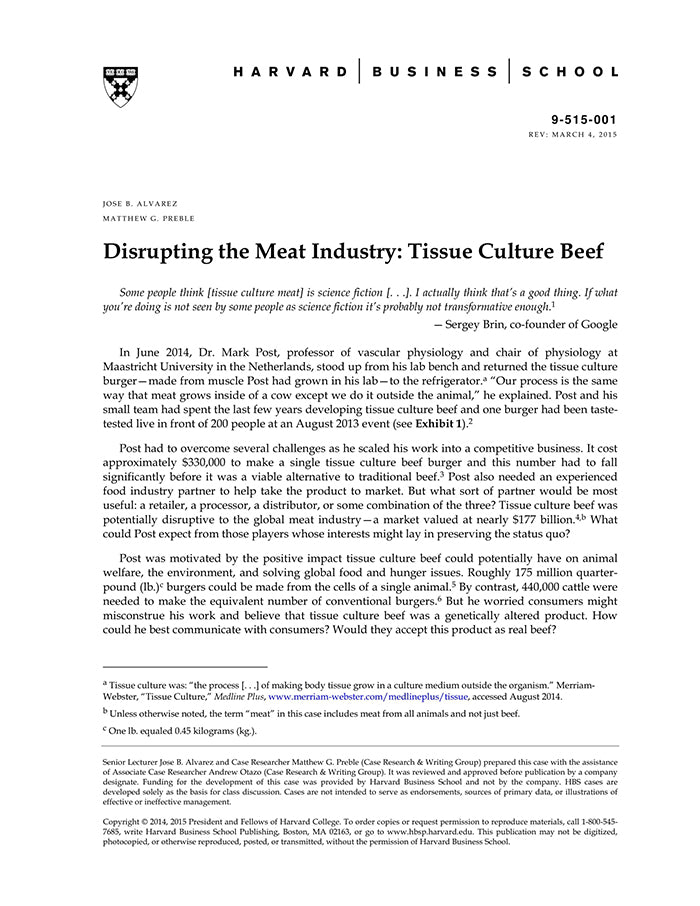Disrupting the Meat Industry: Tissue Culture Beef
受取状況を読み込めませんでした
Dr. Mark Post and his team at Maastricht University were perfecting their tissue culture beef product-made entirely from muscle grown in his lab-to give it the same taste, texture and appearance of a traditional beef hamburger. A previous iteration of this product had been taste tested live, with good results, and Sergey Brin, a co-founder of Google, had provided Post with much of the funding to make the burgers. The next step was to form an independent company around this technology and take it to market. This innovative product could both radically disrupt the existing beef production and supply chain, and provide an animal welfare and environmentally-friendly food that had far less of an environmental impact than traditional beef products. Post faced several challenges in making this a commercially viable product though. He had to get price down, as it currently cost roughly $330,000 to make a single burger. He also had to find the right partner(s) to help him bring the product to market, but who should he work with: someone from the established beef production and supply system, a retailer, or someone entirely outside the traditional beef system? How could he expect established companies to react to this disruption of the status quo? Messaging around this product was critical: How should Post communicate with the public to convey that this was a natural product-the way muscle tissue grew in his lab was the same way it developed in cattle-and overcome public skepticism of overt scientific involvement in their food?
【書誌情報】
ページ数:36ページ
サイズ:A4
商品番号:HBSP-515001
発行日:2014/11/7
登録日:2015/2/5


